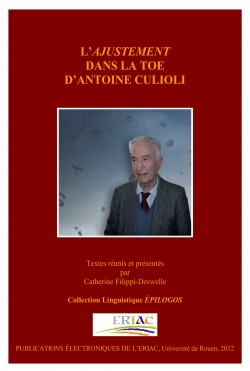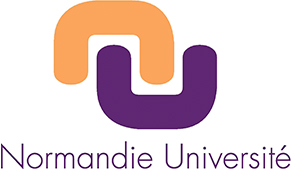Les enjeux de la notion d’ajustement : pour une pragmatique intégrée radicale
Auteur : Gérard MELIS
Résumé
L’article se divise en deux parties. Dans la première, nous posons que tout processus de production-reconnaissance de textes implique un ajustement qui vise à faire correspondre représentations linguistiques et cognitives, formes et valeurs. C’est cet ajustement implicite que le linguiste cherche à reproduire par un calcul métalinguistique. Lorsque la correspondance formes-valeurs est perçue comme problématique, l’ajustement peut se manifester de façon explicite. On peut parler dans de tels cas de réajustement. Dans la deuxième partie de l’article, nous considérons deux types de réajustement. Dans le premier type, un énonciateur signale explicitement un retour rétroactif sur une première représentation, jugée inappropriée. Dans le deuxième type, un énonciateur signale explicitement un réajustement à faire, par anticipation. Ces deux manifestations d’un même phénomène sont illustrées, respectivement, par le cas de certaines subordonnées postposées en WH– EVER en anglais, et par certains emplois citation-nels de LIKE en anglais contemporain non standard.
Abstract
This study is divided into two parts. In the first part, I will consider the term of adjustment as the concept is used within the TOE. We will see that the activity of text production-recognition implies a process of adjustment in all cases, if this is defined as a process whereby a speaker or cospeaker seeks to match linguistic and cognitive representations. As long as the match is felt to be unproblematical, however, there are no explicit markers of adjustment and so, since the TOE deals with observables, the process of adjustment escapes analysis. In other cases, however, the match between linguistic and cognitive representations is not self-evident and, in these cases, the operation of adjustment – or readjustement – may appear in specific patterns of markers, as a speaker exercises a form of metalinguistic monitoring over his or her own production. In the second part I will consider two such types of linguistically-marked adjustment with their associated markers. In the first type a speaker signals explicitly that an initial representation is judged inappropriate in some respect and is being rectified, post hoc, accordingly. Here, the adjustment is initiated by the speaker. This case will be exemplified by examples from English of postposed WH– EVER clauses. In the second type a speaker, aware of a potentially inexact match between the linguistic representation and the projected cognitive representation, indicates this pre-emptively, telling the cospeaker that the utterance will require some adjustment. This case will be illustrated by certain approxi-mative uses of “like”, or cases where non-literal uses of language are linguistically signalled as such to the co-speaker, who is enjoined to operate the appropriate adjustment.
L’auteur
Gérard Mélis est maître de conférences HDR à l’Université Paris-Diderot (Paris 7), UFR Institut des Etudes Anglophones Charles V, membre de CLILLAC – ARP (Centre de Linguistique Inter-langues, de Lexicologie, de Linguistique Anglaise et de Corpus – Atelier de Recherche sur la Parole) EA 3967 Paris 7 – Denis Diderot –Linguistique Énonciative et Formalisation. Il s’intéresse à l’énoncé complexe dans le cadre des théories de l’énonciation (travaux sur les relatives, les formes de nominalisation, la structure argumentale de la prédication…), ainsi qu’à certaines formes rhétoriques (hypallage, euphémisme) et aux aspects théoriques des concepts énonciatifs (énonciation, co-énonciation, parcours…).
Première édition
Gérard MELIS (2012) « Les enjeux de la notion d’ajustement : pour une pragmatique intégrée radicale », dans L’ajustement dans la TOE d’Antoine Culioli, Catherine FILIPPI-DESWELLE (éd.), Collection linguistique Épilogos, 3, Rouen, Publications Électroniques de l’ERIAC, p. 63-80.
ISBN : 978-2-919501-02-1
Article au format pdf
Pour citer l’article
Gérard MELIS, « Les enjeux de la notion d’ajustement : pour une pragmatique intégrée radicale »,
Epilogos, 3, 2012,
L’ajustement dans la TOE d’Antoine Culioli
© Publications Electroniques de l’ERIAC, 2012.
Table des matières
- Catherine FILIPPI-DESWELLE, Introduction
- Claudine NORMAND, La notion d’ajustement dans le métalangage d’A. Culioli
- Graham RANGER, Adjustments and Readjustments: Operations and Markers
- Gérard MÉLIS, Les enjeux de la notion d’ajustement : pour une pragmatique intégrée radicale
- Jean ALBRESPIT, Ajustement et « fuzziness » : théories cognitives et théorie de l’énonciation
- Claude CHARREYRE, Ajustements discursifs : gérondif et nominalisation en « –ing » revisités ?
- Ruth HUART, Ajustement et centrage : les constructions de la forme QLT A GN (such a fuss, what a mess, rather a chore, quite a dilemma, how big a piece…)
- Colette RIEU, L’ajustement notionnel : un outil théorique pour l’analyse de quelques adjectifs en anglais contemporain
- Jean-Claude SOUESME, Quelques traces langagières, lexicales et linguistiques, de la notion d’ajustement
- Blandine PENNEC, La notion d’ajustement : motivations et application au champ des reformulations
- Aliyah MORGENSTERN et Christiane PRÉNERON, Décalages et ajustements co-énonciatifs : Analyse d’une conversation entre un père et son fils
- Patrice LARROQUE, De la norme à la pratique…
- Valérie BOURDIER, De soi à soi et de soi à l’autre : quel ajustement dans les séquences I should think ?
- Agnès LEROUX, Quels sont les enjeux de l’ajustement en linguistique contrastive ? Selon quels paramètres peut-on étudier l’ajustement lorsqu’on travaille sur la comparaison de deux systèmes linguistiques ?
- Catherine FILIPPI-DESWELLE, Pour une linguistique des ajustements énonciatifs
- Catherine FILIPPI-DESWELLE, Index des références à l’ajustement dans les trois tomes de Pour une linguistique de l’énonciation d’Antoine Culioli
- Catherine FILIPPI-DESWELLE, Index des références à l’ajustement dans deux ouvrages philosophiques






